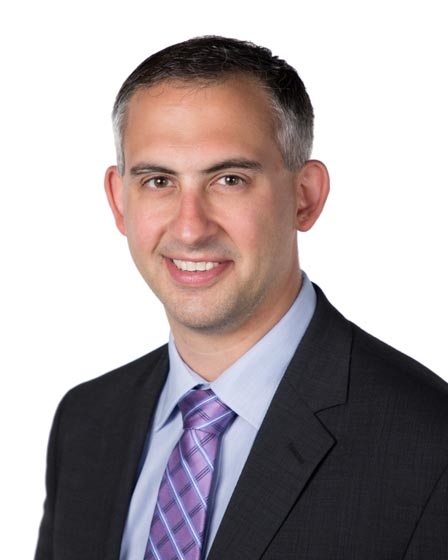Structural Heart and Valve Disease Program
Contact the Structural Heart and Valve TeamOur Structural Heart and Valve Disease Program offers comprehensive, team-based care for conditions affecting the heart's valves, walls, and chambers.
We offer expertise in both open surgery and catheter-based procedures, tailoring treatment options to each patient through a collaborative approach. We specialize in diseases of the aortic, mitral, and tricuspid valves.
Our program brings together some of northern New Jersey’s leading experts and state-of-the-art resources to deliver highly specialized care. We work with you to set long-term goals, create a personalized care plan, and help you return to your life as quickly as possible.
Why choose Englewood Health for heart valve disease care?
We offer:
- Advanced cardiac diagnostics: State-of-the-art testing to accurately determine the type and severity of your valve disease.
- Multidisciplinary expertise: A team of valve specialists—including cardiologists, interventional cardiologists, and cardiac surgeons—who provide comprehensive insights and guide you through every step of your treatment plan.
- Unmatched expertise: Englewood Hospital is the only hospital in New Jersey to receive the highest quality rating (3 stars) for transcatheter aortic valve replacement (TAVR) from the Society of Thoracic Surgeons, and we were the first hospital in northern New Jersey recognized as a certified valve center by the American College of Cardiology.
- High volume and experience: Our program has successfully performed over 1,500 TAVR procedures and is one of the highest-volume centers in New Jersey for mitral valve repair using the MitraClip device, consistently achieving results that surpass most centers nationwide.
The treatment of valve disease is undergoing a rapid change as we speak. The traditional treatment has been open heart surgery to replace the blocked valve. Unfortunately, because this is a mechanical problem, there are no medications that can help. However, this has changed with the development of newer procedures.
-
Ramin Hastings, MD, Medical Director of the Structural Heart and Valve Program

Valve Conditions We Treat
Valves play a critical role in regulating blood flow throughout the body. When they do not function properly, valve disease can severely impact your quality of life and lead to serious cardiac complications. Although medication can help manage symptoms, it can’t treat valve disease. Valve disease includes:
- Valvular stenosis, in which your valve doesn’t fully open, so your heart must work harder to compensate. Aortic stenosis is the most common kind of valvular stenosis and, if left untreated, can cause heart failure and eventually death.
- Valvular regurgitation or insufficiency, in which your valve doesn’t close tightly, causing blood to flow backwards, forcing your heart to work harder.
Below is an overview of how we approach care for each valve:
Aortic Valve Disease
Aortic stenosis is the most common type of valvular stenosis, where the aortic valve doesn’t fully open. This forces your heart to work harder, and if left untreated, can lead to heart failure and even death.
Aortic regurgitation is a condition in which the aortic valve does not close all the way, resulting in blood leaking back into the heart.
Treatment Options for Aortic Valve Disease
If you have aortic stenosis or aortic regurgitation, our team works with you to determine the most appropriate treatment based on your needs. We offer:
- Open Surgery: Surgical aortic valve replacement is an open-heart procedure that removes a diseased aortic valve and replaces it with a mechanical or biological valve.
- Transcatheter Aortic Valve Replacement (TAVR): This advanced procedure delivers an artificial aortic valve via a catheter to replace the damaged valve. Englewood Hospital is proud to offer one of New Jersey’s most experienced TAVR programs.
Mitral Valve Disease
Mitral regurgitation occurs when the mitral valve does not close tightly, allowing blood to flow backward and forcing the heart to work harder.
Treatment Options for Mitral Valve Disease
If you have mitral regurgitation, our team works with you to determine the most appropriate treatment based on your needs. We offer:
- Open Surgery: Surgical mitral valve repair or replacement is an open-heart procedure that aims to restore the proper function of the mitral valve, often by repairing or reshaping its leaflets to prevent blood flow backward (regurgitation) or by implanting an artificial or biological valve.
- Transcatheter Edge-to-Edge Repair (TEER): These catheter-based techniques repair the mitral valve by clipping the leaflets together to reduce regurgitation. We use both MitraClip and PASCAL procedures.
Tricuspid Valve Disease
Tricuspid regurgitation occurs when the valve fails to close properly, allowing blood to flow backward and placing additional strain on the heart.
Treatment Options for Tricuspid Valve Disease
- Open Surgery: Surgical tricuspid valve repair or replacement is an open-heart procedure intended to restore proper valve function. Surgeons may repair or reshape the valve leaflets to prevent regurgitation, or replace the valve with a mechanical or biological one.
- TriClip: A new, minimally invasive transcatheter edge-to-edge repair (TEER) procedure that clips the leaflets together to reduce tricuspid regurgitation.
- EVOQUE: The first FDA-approved transcatheter valve replacement for tricuspid valve regurgitation. Englewood Health is among the first heart centers in New Jersey to utilize this system.
Each treatment option is tailored to the type and severity of your condition, ensuring you receive personalized, expert care every step of the way.
For More Information
For appointment requests, referrals, and more information, please fill out this form and a member of our heart valve team will get back to you. You can also reach us at 201-894-3636.